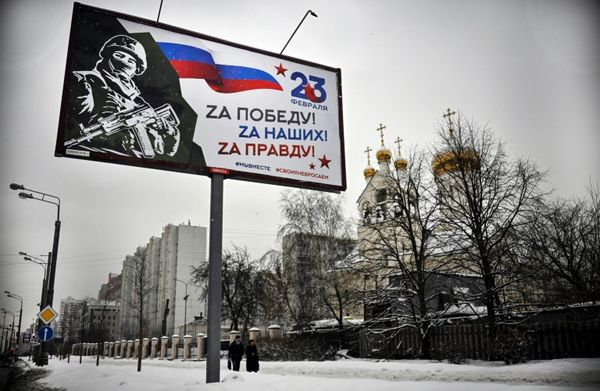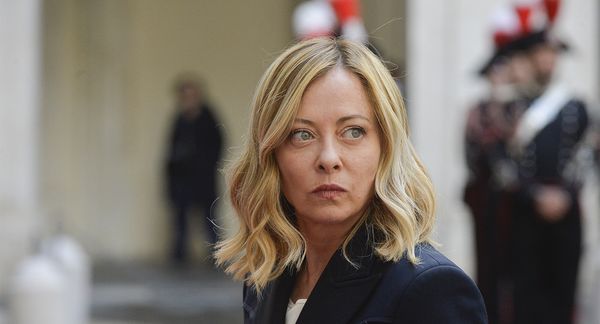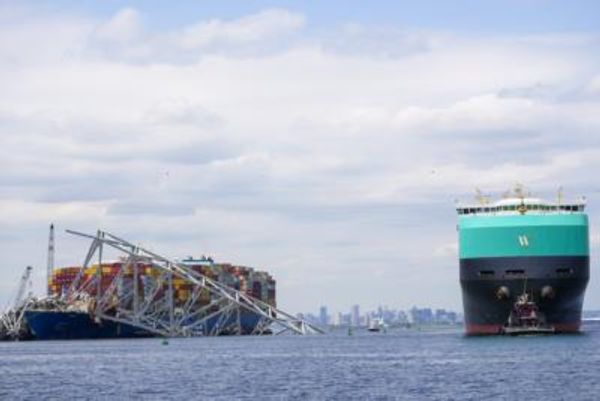
In response to Russia’s invasion of Ukraine, the U.S., the European Union, the U.K., Australia and others have said they are moving to scrutinize the assets of a handful of rich and powerful Russians.
The EU and the U.K. added Roman Abramovich, the billionaire owner of British soccer team Chelsea FC, and a number of other so-called oligarchs, to its expanding list of sanctioned Russian individuals.
U.S. officials had also targeted Mr. Abramovich, but held off because Ukrainian President Volodymyr Zelensky advised President Biden in a recent phone call to wait on sanctioning the oligarch, who might prove important as a go-between with Russia in helping to negotiate peace. Mr. Abramovich also suffered symptoms from suspected poisoning alongside Ukrainian negotiators, The Wall Street Journal reported this week.
French and Italian authorities have already swooped in and seized a number of yachts and villas owned by some other oligarchs. Other yachts made it to international waters before authorities caught up with them. The Justice Department joined some other countries recently in setting up special task forces to hunt down assets. The U.S. named its team Task Force KleptoCapture.
Western governments say these oligarchs have profited from close ties to Russian President Vladimir Putin. Many have spent lavishly outside Russia, boosting local economies with property purchases and other investments. Now, authorities around the world see them as a way to pressure Mr. Putin.
Some oligarchs have publicly signaled they are against the war. Mr. Abramovich, who made his money in the energy business, has offered to mediate peace efforts and recently been at talks between Russia and Ukraine. Before he was sanctioned by the U.K., he also said he was looking to sell Chelsea. A spokeswoman for Mr. Abramovich hasn’t responded to a request for comment.
What is an oligarch?
The term comes from political science. An oligarchy describes a power system led by a small group of people. In recent years, the word “oligarch" has taken on a more specific meaning when it relates to Russia, referring to the group of Russian businesspeople and officials who gained wealth and power in the years following the collapse of the Soviet Union.
Why are Western governments imposing sanctions on Russian oligarchs?
The U.S. has sanctioned many of these individuals in years past, including after Russia’s 2014 annexation of Crimea. After Russia invaded Ukraine, the U.S., EU and U.K. have intensified restrictions and added names to their target lists.
The Biden administration has said the oligarchs provide resources to support Mr. Putin’s Ukraine military campaign and must pay the price. Mr. Putin is “looking at the impact on his own economy, on his rich and wealthy oligarch friends, and on the people of Russia," White House press secretary Jen Psaki said in February about the U.S. and allied sanction effort.
What’s happening to Roman Abramovich?
Mr. Abramovich has become the highest-profile member of the oligarch class in recent weeks. He made his fortune in the oil business during Russia’s lurch from communism to capitalism. He then embarked on a lavish spending spree around the world, snapping up Chelsea, expensive real estate in the U.K. and the U.S., yachts, planes and a formidable art collection. He has also donated generously to charities. More recently, he has emerged as a public face in negotiations between Ukraine and Russia. The Wall Street Journal reported he and Ukrainian peace negotiators suffered symptoms of suspected poisoning after meeting in Kyiv, an effort people familiar with the matter said was aimed at thwarting talks.
How do sanctions against individuals work?
Governments have powers to temporarily freeze assets of individuals or entities in their jurisdiction, without proving criminality. Owners of assets are typically barred from selling or benefiting from them until sanctions are lifted or successfully contested. Governments typically can’t move to take ownership of the assets, though, except after often-lengthy legal proceedings that would require proof of lawbreaking. The U.K. government, however, is considering laws that would give itself the powers to seize sanctioned assets.
How did Russia’s oligarchs gain their wealth and power?
The country’s current crop of billionaires and officials accumulated wealth and power in different ways. Some of those on the sanction list are part of Mr. Putin’s inner circle; others are longtime associates; still others benefited from a wave of privatizations that followed the collapse of the Soviet Union.
Do they all have yachts?
No, but like many superhigh-net-worth individuals, many do. Those vessels have become high-profile, hard-to-hide targets for authorities. French officials, for instance, seized one that it says belongs to a company majority owned by Igor Sechin, the sanctioned chief executive of Russian oil producer Rosneft. The 280-foot yacht, the Amore Vero, was seized at a shipyard in La Ciotat, on France’s Mediterranean coast. The yacht was undergoing repairs, but French authorities said arrangements were being made for it to sail urgently. Mr. Sechin is sanctioned by the U.S. and the EU. When he was sanctioned in 2014 by the U.S., he said he considered the move an endorsement of his effectiveness at Rosneft.
What other expensive toys do they own?
They are well-known buyers of art, trophy real estate, sports teams and private jets. Here’s a look at some of Russia’s best-known oligarchs and some of their high-profile holdings. They were such big players in London’s high-end real estate that some are bracing for disruption in that market.
What are some of them saying about the Russian attack on Ukraine?
Oleg Deripaska, a raw-materials magnate who was previously sanctioned in the U.S., wrote on social media that peace “is very important." Mr. Deripaska sued the Treasury Department in 2019 challenging his inclusion in an agency report on Russian oligarchs as well as the sanctions against him, alleging the U.S. made false accusations based on rumor and innuendo to support the sanctions.
Mikhail Fridman, a founder of Alfa Bank, Russia’s largest private bank, was sanctioned by the EU. Mr. Fridman said that he would contest the designation and that he isn’t politically or financially connected to Mr. Putin.
“It seems to me that we have done a lot of good things, invested in companies, created a lot of jobs," Mr. Fridman said at a press conference from his private-equity firm’s office in London. “We will litigate to protect our reputation."
What has President Biden said about oligarchs?
“We are joining with our European allies to find and seize your yachts, your luxury apartments, your private jets," Mr. Biden said Tuesday during his State of the Union address. “We are coming for your ill-begotten gains."







